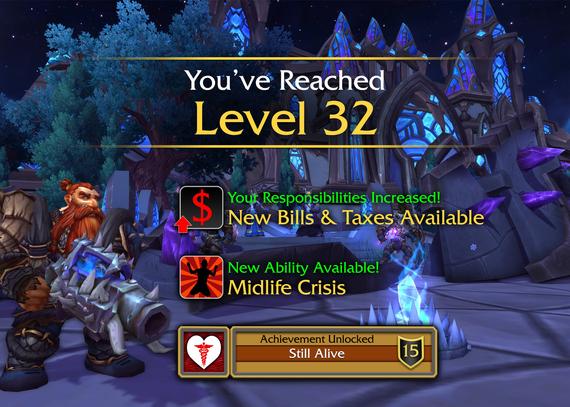I have friends who just want a simple life. They are not aiming for financial freedom, neither are they financially-savvy. They do not know and they are not interested about the big things of the world – the economics, the politics, the current affairs. They just want to have a stable job, a family which they can raise and be able to retire in peace. I am not looking down nor laughing at this group of people. Instead, today’s article is dedicated to this specific group of people who just want a simple life yet have sufficient resources to be able to retire in peace and dignity.
Savings
In Chinese there is this phrase called 開源節流. 開源 means to open new sources and 節流 means to restrict the outflow. It is very applicable to our money. Since we are aiming for a simple life, I will take it as both husband and wife are having a full time job but neither will be taking up any sidelines, be it business or part-time jobs. In that case, the source of your funds are more or less fixed and dependent on your job. While we can work hard and strive for a promotion, the more controllable aspect would be to look at our savings.
Housing and kids are big expenses. But we can still spend below our means and save what we can. For example, we do not need to buy fanciful condominiums nor cars. These are big ticket items and you are paying for the intangible aspects more than the tangible ones. If you are earning $1 and you spend $1, you are definitely spending within your means but you are not saving any for the future.
Do note that I am not advocating for a stingy or cheapskate mentality. If you need a bigger house for your kids, by all means. But there probably is not a pressing need to buy a luxury house in a central location. Just a normal house in an average location will do. If you need a car for your every day travels, by all means a Honda or Toyota will do a job. You do not need an Audi or BMW. And you most likely do not need 2 cars for your family, which I see many slightly well to do families having.
Aim to save 50% of your monthly salary. Of course, everybody’s situation is different, but you should aim to get as close to the 50% mark as you can.

Safe Assets
One of the assumptions we make is that this simple family do not know much about investments. Hence forex, crypto, stock market etc will be out first. I will come back to this later. If that is the case, what can we do? For one, put in the bank’s fixed deposits. Fixed deposits generally offer a slightly higher rate than a normal savings account. Stagger your fixed deposits though. For example if you have $100,000, do not put $100,000 into one single fixed deposit, because you will suffer a liquidity issue. Instead, split it into 4 portions, and stagger them, such that every quarter of the year you put in $25,000. And you renew the fixed deposits each time they expire. That way, you will be safer during unexpected situations where you might suddenly need funds.
Another financial instrument you may wish to consider is Government T-bills (Treasury Bills) or Government bonds. Unless you are living countries like Syria or Zimbabwe, we will assume that generally Government bonds are reliable. At times they offer a higher yield (interest rates) than banks’ fixed deposits, so if you have some spare money which you can set aside for a while, do consider them.
Credit Cards
There are many credit cards around. Some offer miles for purchases, some offer points for spending, yet others offer cashback. Having credit cards will require certain degree of discipline so you do not get carried away and swipe off your cards too much. However, if you are disciplined enough, using these cards for your purchases will offer you varying degrees of discount. While different cards offer different discounts (card A for dining, card B for transport, card C for retail shopping etc), my personal experience tells me that you should try to concentrate spending on one or two cards instead of getting every card for every purpose. If the main purpose of using credit cards is to save, then generally one’s spending will not be too much and will not be sufficient to truly capture the real benefits of each card because the spending is too spread out and little. Go for a cashback card, for example 1% cashback on all spending. You instantly save 1% on your purchases. Do not look down on the 1%. Every drop in the bucket counts.
And if you are out dining with friends, and even if everyone is splitting bills and if everyone does not mind, do swipe your card to earn the cashback.
Membership Cards
There are certain large corporations or partnerships with different corporations where they come out with a membership card, such that you can earn points for every dollar purchased in their stores. It can be a supermarket membership card, or any other membership cards for general retail. In Singapore, we have the Passion Card initiated by the Government where they partner with a range of retail stores and supermarkets where the points you earned for your purchases can be converted into discounts. Do consider that. Similarly to the credit cards, cutting down the cost of your purchase without putting much extra effort is actually very worth it.
Investments
Yes I have said above the simple man may not be interested in investments. While the least we could do is to save enough, and while simply doing that consistently over the years is certainly likely to be sufficient for our retirement, it does not change the fact that our purchasing power will drop over time with the same amount of money. Inflation is a system designed to reap off people’s hard work and savings.

I am not saying to do investments we should go deep into the fundamentals or technicals of the charts, study each company and all. If we are simple people aiming for the simple things in life, then things need not be complicated. Consider the stock market indices, such as the S&P 500, which tracks the performance of the top 500 companies listed in the stock exchanges in the US. Such indices track the performance of the top x company of a certain stock exchange or country. We also have the NAS 100, DAX 40, Hang Seng Index etc. Of all of these indices, S&P 500 is the most popular.
Markets go up and down all the time, but in general, they tend to go up over time. In an oversimplified summary, these indices generally track the health of the market and the economy of the country. And from the articles in this blog so far, we can gather the following: Big companies play on overwhelming advantages, and they often successfully reap off the commoners. If you cannot beat them, join them. Invest in the indices knowing that the top companies will reap off the people and profit. Share in their profits. Invest a little money into the indices every month, and you should be able to see your portfolio grow over time. It is ok if the value falls in the short term. In the long term it should go up.

Side note: I have mentioned the decline of the US previously, and I have said that a recession is coming. If you believe that the US will not be as strong as before, feel free to do a bit of research and pick a country you have faith in. If you believe that a recession is also coming, no harm waiting for a few more months to a year to see how it goes. The indices should fall further before you go in. Else, in the spirit of a simple man who does not want to spend too much time thinking, just put your spare money into S&P 500 every month starting now. You should still come out safe.
Second Property
If years later due to prudent savings and financial management, you find yourself having the money to buy a second property, go for it. With rental income from a second property, you can be more or less assured that your retirement is secured. Every month, the rental income which comes in should be sufficient to maintain your daily expenses. Take note not to restrict yourself to only residential properties, for there are many types of real estate which you can consider – from warehouses to shops, from carparks to even offices and graves, real estate is more than just a place to live in.
Throw in the savings and investment portfolio you have accumulated over the years, you should be able to live comfortably.
Conclusion
Even if we want a simple life, there are still things we can do. Bit by bit, consistently over the years, we will be able to plan out something for ourselves. If after retirement, we want to go out to work, such as picking cardboards for the sake of exercising to keep ourselves healthy, then that is a choice we have. Doing something out of choice and being forced to do it are totally 2 different things.
The whole purpose of this blog – financial freedom, is essentially the freedom to choose. The freedom to choose the life we want to live.

But do take note, that by choosing the path of a simple man, you will most likely work for free for half your life. You will be reaped off slowly and in peace. The ambitious man may make it big or lose everything, or come one round to realise that simplicity is everything. There is no shame nor glory in choosing either. Pick your poison and live your one and only life the way you want it to be.
As for me, my goal is still very clear – freedom. Not money, not glory, not praises. Freedom.
It just so happens that money is the quickest path to achieving it.
Showing 1 - 3 out of 3
Page 1 out of 1
| - | Shop Products | Price | |
|---|---|---|---|
|
|
$99,999.00
|
||
|
|
$1.00
|
||
|
|
Price range: $69.00 through $99.00
|


